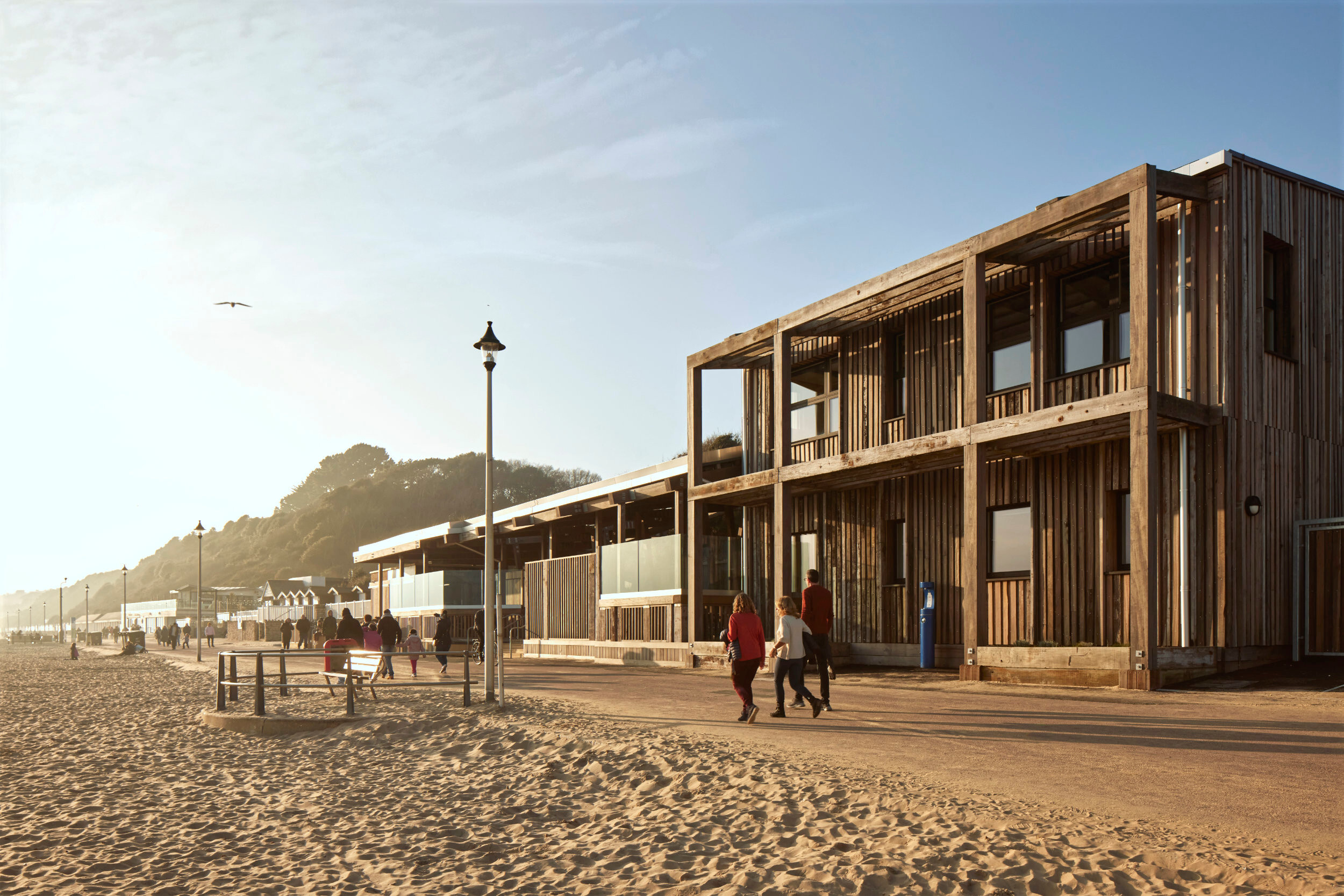
The beach-based venue at Durley Chine, provides a new destination helping to deliver a step-change in the reduction of waste and elimination of single-use packaging along Bournemouth, Christchurch, and Poole’s beautiful seafront.
Funded with £2.4 million from the Coastal Communities Fund, the long-term aim remains to develop the venue into an education space for residents, visitors, schools and families to drive a step change in behaviour and build environmental guardianship of the coastline.
The building reuses 45 tons of timber recycled from the seafront’s old groynes and seven tonnes of timber reclaimed from a German naval shipyard.
The main building is built to Passivhaus standards, an internationally recognised standard for buildings that are highly energy efficient and features a green roof to support greater biodiversity.
Here are some impressive statistics from WSP, the building's designers:
Timber used for the exhibition space reclaimed directly from the seafront - 60%
Embodied carbon achieved for the whole scheme (scoring an A+ rating) - 172kgCO2e/m2
Forecasted regulated energy loads achieved by onsite photovoltaic panels - 100%
Following a net-zero-carbon strategy for regulated energy consumption (space heating and cooling, domestic hot water, ventilation, fans and pumps, and lighting), WSP enhanced performance as much as possible. This included using demand-controlled ventilation and low-energy lighting and controls. Air-source heat pumps provide the small amount of space heating required, and built in flexibility for the future by providing for comfort cooling to be installed on the first floor. Solar PV on the building’s roof offsets the remaining CO2 emissions by generating an estimated 18,630kWh per year.
Not only is the building attractive, but it provides an innovative use for otherwise wasted beach materials - we hope to see more projects like this on other coastlines in the future!
Sources: BCP Council & WSP Environmental Consulting
